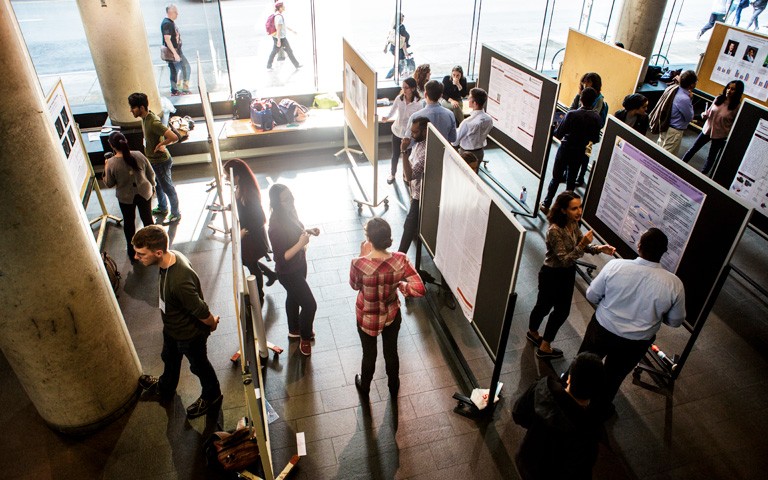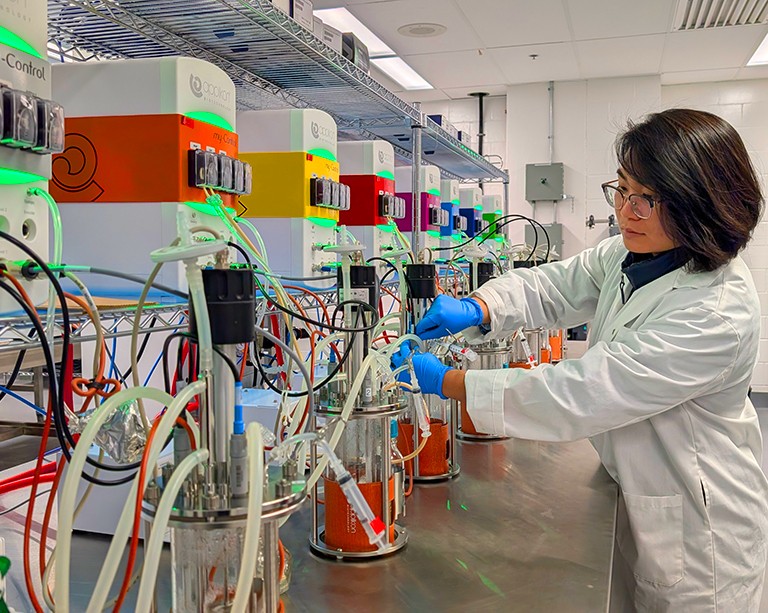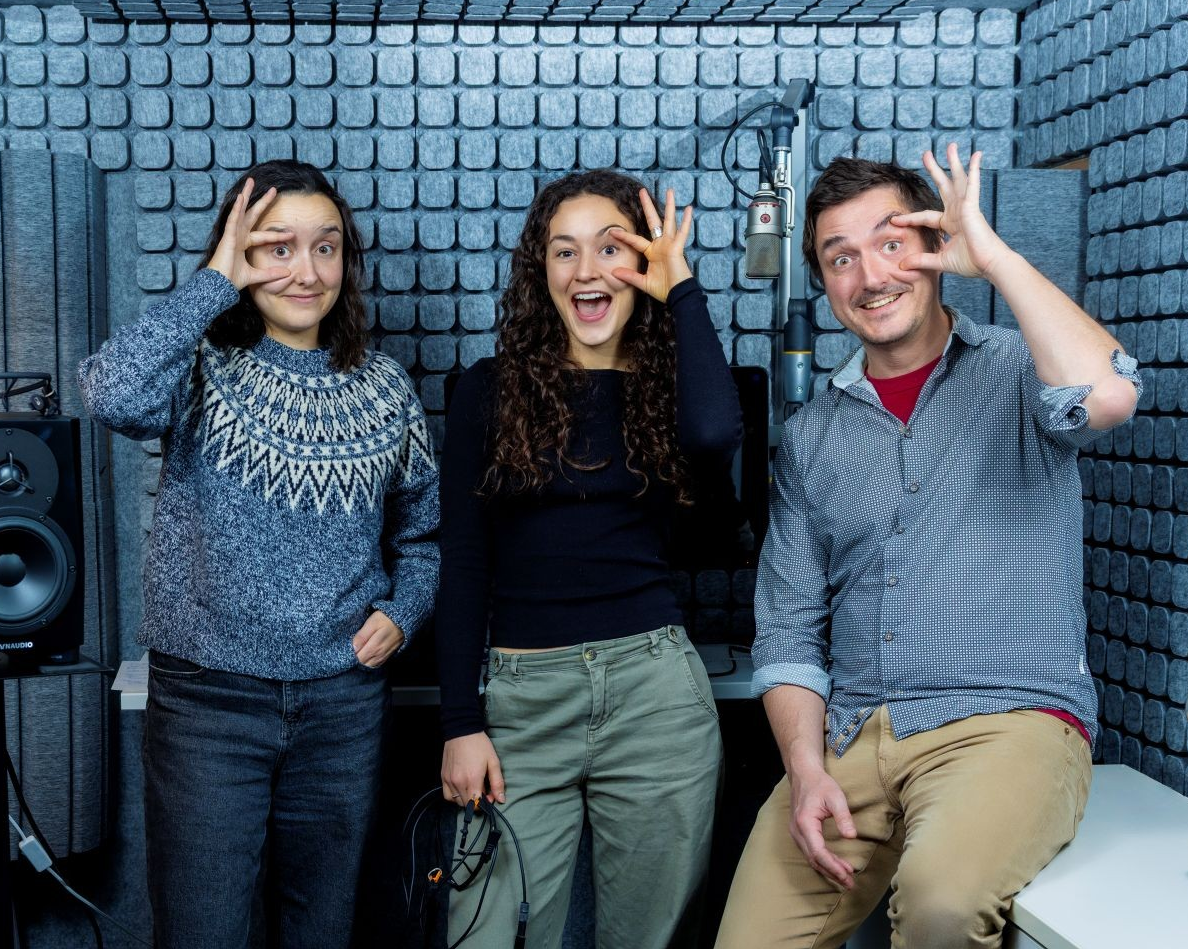Undergraduate Research Showcase tackles climate change, marijuana habits and more

After a rigorous summer experience, Concordia undergraduate researchers are ready to kick off a new academic year with an eclectic exhibit of inquiry, discovery and learning.
The sixth annual Undergraduate Research Showcase will take place on September 13 between 2 and 4 p.m. in the Engineering, Computer Science and Visual Arts Integrated Complex (EV) Atrium.
It’s an opportunity for new and current students, faculty and staff to exchange ideas with a growing undergraduate research community.
The event will display the work of over 55 recipients of the 2019 Concordia Undergraduate Student Research Awards (CUSRA) as well as winners of the Natural Sciences and Engineering Research Council of Canada (NSERC) Undergraduate Student Research Awards.
These award programs are designed for undergraduates eager to get a head start on exploring research-related careers or graduate studies. They provide paid opportunities to work with Concordia faculty members over the summer.
Students tackle subjects ranging from public policy, culture, health, biology and more. They have the option of joining the ongoing research of their supervisors, or pitching their own project ideas.
This year, over 100 awards were granted to high performing students in all four faculties after a competitive selection process.
In anticipation of the showcase, we spoke with four undergrads about their projects.
I learned the value of making science beautiful
On Urban Mobility
Dillan Cools, an urban planning student in the Faculty of Arts and Science, investigated ways to efficiently navigate human mobility in urban settings.
Together with fellow undergrad Scott McCallum, Cools extracted travel data from Google Location History to determine whether it can accurately inform urban and transport planning — designing livable cities, efficient transit systems and bike networks.
He worked under the supervision of Zachary Patterson, associate professor in the Department of Geography, Planning and Environment and Canada Research Chair Tier 2 Transportation and Land Use Linkages for Regional Sustainability.
For Cools, hands-on research gave new life to his academic goals.
“My experience as a CUSRA recipient was extremely motivating and has taken my excitement for my program to a new level,” he says.
“Professor Patterson’s guidance and encouragement allowed me to build on the knowledge I had acquired during the year, while also introducing me to new concepts and ultimately giving me the opportunity to apply it all in a real-life setting.”
On Marijuana & Health
Psychology student Agata Kasprzyk examined links between social anxiety and marijuana consumption habits among university students.
Her research delved into the implications of marijuana overuse on physical and mental health, taking into consideration factors such as personality and cognitive processes.
“I was fortunate enough to be able to start this study from scratch and learn first-hand about how much goes into getting a study off the ground,” says Kasprzyk, who worked under the supervision of Roisin O’Connor, associate professor in the Department of Psychology.
Her biggest take-away was achieving ownership of her research.
“I conducted exploratory literature review research, found valid and reliable measures relevant to the study, filled out numerous ethics forms and applications, and had to set up a user-friendly website for participants to use,” Kasprzyk says.
“Dr. O’Connor gave me the freedom to design a project I was proud of and could call my own.”
On Bilingual Babies
Erica Chelini, also from the Department of Psychology, is interested in language acquisition and classification in babies. Motivated by the bilingualism of Montreal, she observed babies’ abilities to correctly differentiate English and French words in a bilingual household.
She hopes that the outcomes of her research will provide new parents with insights on raising bilingual children and fill gaps in current theories of language development.
Under the supervision of Krista Byers-Heinlein, associate professor of psychology and Concordia University Research Chair in Bilingualism, Chelini was able to find her own voice within a research environment.
“Dr. Byers-Heinlein and Lena Kremin from the Concordia Infant Research Lab have been wonderful mentors. Their encouragement to voice my ideas and ask questions has been so valuable and has inspired me to feed my curiosity.”
On Climate Change
Mechanical engineering student Shakil Jiwa joined Ali Nazemi, assistant professor in the Department of Building, Civil and Environmental Engineering, in his ongoing research to break down knowledge barriers between scientists and the greater community around managing water security and climate change.
“I feel truly lucky to work in the Water Security and Climate Change Lab with a supervisor as inspiring and motivating as Dr. Nazemi,” Jiwa says.
His project was to create a useful website with a modern interface that contained analysis tools and visualizations of cold region climate variables, such as temperature and precipitation, in Quebec.
The aim was to provide industry with visual data on climate variables, as well as to inform public communities on the impacts of extreme precipitation, freeze and thaw conditions and climate change on water systems.
“I learned the value of making science beautiful, artistically,” he says. “The importance of aesthetics and attention to detail will not only carry on in my research, but through my life in general.”
Check out the Undergraduate Research Showcase, on Friday, September 13, from 2 to 4 p.m. in the Engineering, Computer Science and Visual Arts Integrated Complex (EV) Atrium. Find out more about undergraduate research opportunities at Concordia.




